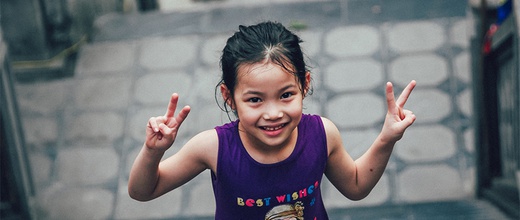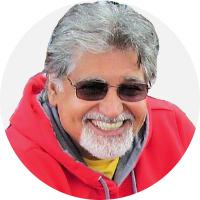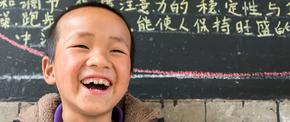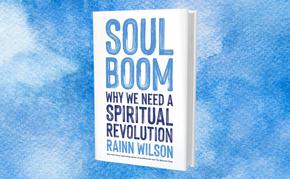The views expressed in our content reflect individual perspectives and do not represent the authoritative views of the Baha'i Faith.
Nineteen years ago, one of the churches in our little town started organizing a Peace Walk on the first day of each year. They invited everyone to join, and as a Baha’i, I welcomed the invitation.
Baha’is all over the world actively work for the oneness of humanity and peace on Earth, so with great joy I attended the first Peace Walk and have participated in each one since the beginning.
The Peace Walk’s route takes us through the center of town, and the cars on the road mostly honk in support of peace. Each of my fellow peace walkers—all from different groups—hold their homemade signs quoting sayings from their religions or ideologies.
I made a sign quoting Baha’u’llah, the founder of the Baha’i Faith: “The earth is but one country, and mankind its citizens.”
After the walk, we all go to a cozy hall in the basement of a senior housing facility. There is no set program, since we all know why we’re there. We come from different religions, and some of us have no faith at all, but we each know that peace is essential to all of us. That shared conviction creates a feeling of togetherness sensed by everyone. We spontaneously sing religious and non-religious songs, recite poetry and give short talks on peace. After that, everybody is invited to go for lunch at a Sikh temple nearby to enjoy the delicious homemade food prepared by the Sikh community.
I like many aspects of the Peace Walk, but mainly appreciate its practical, simple approach to creating peace and oneness by sharing ideas, prayers, music and food with people from different backgrounds. This unity in diversity appeals to me immensely. It feels like a small family, with each member representing a different country and religion, sitting down to eat and enjoy each other’s company together.
This year, one of the participants said this Baha’i prayer about peace and unity:
O Thou kind Lord! Thou hast created all humanity from the same stock. Thou hast decreed that all shall belong to the same household. In Thy Holy Presence they are all Thy servants, and all mankind are sheltered beneath Thy Tabernacle; all have gathered together at Thy Table of Bounty; all are illumined through the light of Thy Providence. O God! Thou art kind to all, Thou hast provided for all, dost shelter all, conferrest life upon all. Thou hast endowed each and all with talents and faculties, and all are submerged in the Ocean of Thy Mercy. O Thou kind Lord! Unite all. Let the religions agree and make the nations one, so that they may see each other as one family and the whole earth as one home. May they all live together in perfect harmony. O God! Raise aloft the banner of the oneness of mankind. O God! Establish the Most Great Peace. Cement Thou, O God, the hearts together. O Thou kind Father, God! Gladden our hearts through the fragrance of Thy love. Brighten our eyes through the Light of Thy Guidance. Delight our ears with the melody of Thy Word, and shelter us all in the Stronghold of Thy Providence. Thou art the Mighty and Powerful, Thou art the Forgiving and Thou art the One Who overlooketh the shortcomings of all mankind. – Abdu’l-Baha, The Promulgation of Universal Peace, p. 100.
After a few songs, we all listened to a talk about the need for taking care of the refugees coming to our country from different war-torn places. After that, a 12-year-old Muslim boy sang a very heartwarming song about peace. Then came the turn of one of the Baha’is, a refugee himself, who talked about the biggest hindrance to peace—prejudice. He paid particular attention to the harm religious prejudice can inflict on society. His talk gave a chance to the audience, who were mostly religious, to take stock of their own feelings about other religions.
He quoted the Baha’i teachings, which tell us about the importance of the removal of all kinds of prejudices:
Prejudices of religion, race or sect destroy the foundation of humanity. All the divisions in the world, hatred, war and bloodshed, are caused by one or other of these prejudices. The whole world must be looked upon as one single country, all the nations as one nation, all men as belonging to one race. Religions, races, and nations are all divisions of man’s making only, and are necessary only in his thought; before God there are neither Persians, Arabs, French nor English; God is God for all, and to Him all creation is one. We must obey God, and strive to follow Him by leaving all our prejudices and bringing about peace on earth. – Abdu’l-Baha, Paris Talks, p. 131.
Baha’is believe that one of the main hindrances preventing us from attaining peace today has involved only talking about peace and not taking real, substantive actions. We have many talks, books, conferences, treaties and high-minded thoughts about this subject—but not enough actual effort to achieve true peace:
Love ye all religions and all races with a love that is true and sincere and show that love through deeds and not through the tongue; for the latter hath no importance, as the majority of men are, in speech, well-wishers, while action is the best. – Abdu’l-Baha, Selections from the Writings of Abdu’l-Baha, p. 69.
Baha’is make an effort to participate in projects and processes that ensure peace by actions and not only words. Peace can sometimes seem like an unattainable dream, but it should not be that way. People on our Peace Walk have simplified it to small steps of coming out, being visible and being heard—then showing that we can peacefully unite despite any differences we may have. There is no reason why we all cannot do the same by reaching out to like-minded people or organizations and facilitating similar events. In this way, we can be the active catalysts of peace and not just passive bystanders on the sidelines.

















Comments
Sign in or create an account
Continue with Facebookor